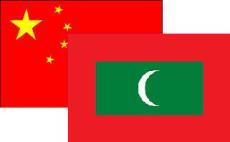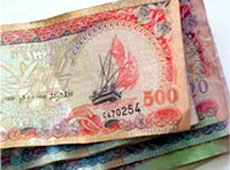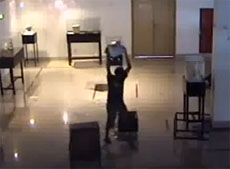The High Court has today overturned a Juvenile Court decision to sentence a 15-year old to 100 lashes after she was charged with fornication.
The case of the minor, who was previously found to have been a victim of sexual abuse, has garnered global media attention and condemnation from numerous human rights groups.
At the same time, an online petition calling for her sentence to be revoked has been being signed by over two million people.
Despite today’s hearing being held behind “closed doors” (as per Article 42 of the constitution), the High Court later released a statement with details of the verdict.
According to the statement, the High Court decided to revoke the minor’s sentence after she denied confessing to having consensual sex with an unknown partner during the Juvenile Court trial. Authorities previously said the minor had confessed to having consensual sex during a separate investigation into her sexual abuse.
According to Islamic Fiqh scholars, a confession of fornication can be retracted before the resulting sentence is carried out in full, the High Court statement added.
It was further noted by the court that there were discrepancies in the statement given by the girl to the Juvenile Court. The High Court concluded the minor, found to be suffering from post-traumatic stress disorder, was also unable to correctly define pre-marital sex according to the law.
The High Court argued that its verdict had been based on the evidence that the girl was ‘unfit for trial’ during investigations into her alleged abuse and the subsequent Juvenile Court hearings against her.
The court said that the minor had provided her original statement in the capacity of a ‘victim’ and not a suspect, and that authorities had therefore not given her the fundamental rights legally required of a suspect in a crime.
The statement concluded by saying that the panel of judges presiding over the case did not believe that the Juvenile Court had enough evidence to prove beyond any doubt the charges against the girl. ‘Hadd’ sentences cannot be issued unless a crime can be proved beyond any doubt, the High Court argued.
To date, the girl remains under the care of the state, serving the sentence of house arrest at the children’s shelter on Vilimale’.
Successful appeal
The High Court verdict was issued after the conclusion of an appeal case against the Juvenile Court’s ruling, which was submitted by the Attorney General’s Office on March 27.
In January, the Prosecutor General’s Office claimed that charges of fornication had been raised against the girl “after extensive assessment of the case”, and that they had “no intention of reversing the decision”.
According to local media, Attorney General Azima Shakoor and officials from the Human Rights Commission of Maldives (HRCM) were present at the closed door hearing held today (August 21).
Vice President of the HRCM, Ahmed Tholal, stated that the commission had worked to protect the victim from the beginning of the case.
“It is due to the negligence of all state authorities that the case went as it did, subjecting her to an undeserved sentence while she was already a victim of abuse,” he said.
President’s Office Media Secretary Masood Imad described the High Court ruling as a “fantastic” development that he believed vindicated President Mohamed Waheed Hassan’s stance to have the flogging sentence overturned through the Maldives’ court system.
“The president has continued to stress his intention of having the case overturned by following the process of law. He has got it done by law, which is fantastic,” he stated.
Masood added that the government’s determination to have the sentence overturned was “typical” of President Waheed’s tenure as head of state since coming to power in February 2012.
Asked what impact today’s judgement might have on the government’s previously stated commitment to overseeing legal reforms of the treatment of sexual abuse victims and the use of flogging as a punishment, Masood requested contacting the Attorney General’s Office.
Attorney General Azima Shakoor was not responding to calls at time of press.
Victim accused
In June 2012, the victim gave birth to a baby that was later discovered buried in the outdoor bathroom at her residence. Her stepfather was subsequently charged with sexual abuse of a child, possession of pornographic material, and committing premeditated murder.
Meanwhile, her mother was charged with failing to report child sexual abuse and with concealing a crime.
In January, an official of the Prosecutor General’s Office stated that the charges of fornication were levied in relation to a separate offence of premarital sex that had emerged during the police investigation into the baby’s death.
Sources from Feydhoo, in Shaviyani Atoll, where the girl is from, previously told Minivan News that islanders had raised concerns regarding the minor as far back as 2009. Local people were said to have suspected that the girl had been the victim of sexual abuse, not just by her stepfather, but also by a number of other unidentified men from the island.
The Attorney General’s Office appealed the case on March 27. The announcement was made on the back of appeals from international human rights advocacy organizations and Avaaz.org, which launched an online petition – gaining over two million signatures.
The UN at the time released a statement which noted allegations that the child had been a victim of long-standing sexual abuse:
“Under international legal human rights obligations of Maldives, corporal punishment, including flogging, amounts to cruel, inhuman or degrading punishment or even to torture.”
Meanwhile, the religiously conservative Adhaalath Party, which heads the Ministry of Islamic Affairs in the current administration, previously declared that the 15 year old rape victim “deserves the punishment”.
“The purpose of penalties like these in Islamic Shariah is to maintain order in society and to save it from sinful acts. It is not at all an act of violence. We must turn a deaf ear to the international organisations which are calling to abolish these penalties, labeling them degrading and inhumane acts of torture,” said the party.
 In September 2012, President Waheed told
In September 2012, President Waheed told  electricity and phone bills if funds were not transferred from the MVR 1.8 billion (US$117 million) Public Sector Investment Programme (PSIP).
electricity and phone bills if funds were not transferred from the MVR 1.8 billion (US$117 million) Public Sector Investment Programme (PSIP). “I’m very surprised the government [is holding this event] but are not able to arrest those who
“I’m very surprised the government [is holding this event] but are not able to arrest those who